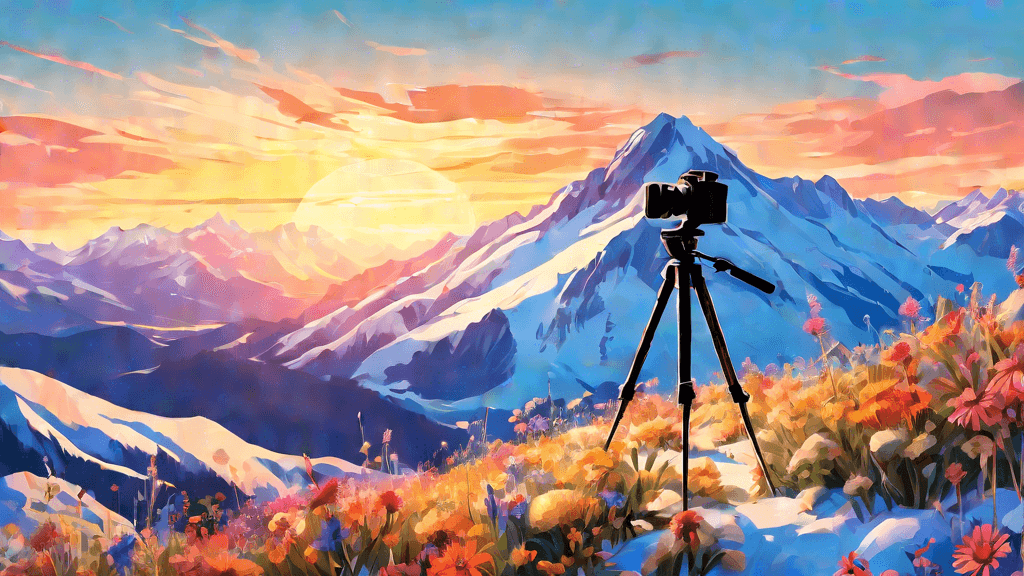
Capturing the Majestic: A Guide to Mountain Photography
Share
Unlocking the Majesty of Mountain Photography
Mountain photography is not just about capturing the beauty of a landscape. It's an art that requires understanding the terrain, the play of light, and the myriad elements that influence a mountain's aura. Whether you are a professional photographer or a passionate amateur, learning to photograph mountains can enhance your artistic repertoire significantly. But what does it take to capture these majestic landscapes effectively?
Understanding Your Subject: The Mighty Mountain
Mountains are dynamic subjects. They change their appearance not just seasonally but also hourly, depending on the weather and lighting conditions. Understanding the behavior of light on the mountains is crucial. Early mornings and late afternoons are often the golden hours for photographers due to the warm soft light. However, don't underestimate the dramatic, moody photographs that can be captured under overcast skies.
Essential Gear for Mountain Photography
Success in mountain photography often comes down to carrying the right equipment. Here’s a quick checklist:
- Camera: A DSLR or a mirrorless camera with manual settings capability will offer the most flexibility.
- Lenses: A wide-angle lens is essential for vast landscapes, while a telephoto lens can capture distant peaks in detail.
- TriPod: Mountain terrains can be windy and unstable; a sturdy tripod is a must for sharp images.
- Filters: Polarizing filters can enhance the blues of the sky against the mountains, and ND filters are perfect for controlling light in bright conditions.
- Extra Batteries and Memory Cards: Cold and frequent use can drain batteries quickly, and high-resolution photos require a lot of memory.
Techniques to Enhance Your Mountain Shots
While equipment is crucial, technique plays an equally vital role. Here are some tips to help you refine your mountain photography skills:
- Composition: Use the rule of thirds to position mountains interestingly within the frame. Incorporating elements like rivers or trees can add depth to your compositions.
- Lighting: Experiment with sidelighting to emphasize the texture and form of the mountains.
- Exposure: Mountains often feature drastic contrasts between the sky and the land. Bracketing exposures to later blend them into an HDR image can be very effective.
- Focus: Depending on your scene, decide whether to focus on a prominent foreground element or the mountain itself to guide the viewer's eye.
Overcoming Challenges in Mountain Photography
Photographing mountains comes with its set of challenges, primarily dealing with vast differences in lighting and weather conditions. Unexpected rain, fog, or extreme sun can not only affect your shots but can also be hazardous if you're not prepared. Always check the weather forecast before heading out and carry appropriate clothing and gear for protection.
Inspiration from the Experts
Many renowned photographers have managed to beautifully capture the essence of mountains. Ansel Adams, famous for his black and white landscapes, once said, Sometimes I do get to places just when God's ready to have somebody click the shutter. His work in the Sierra Nevada, including 'Monolith, the Face of Half Dome' exemplifies the impact of perfect timing and deep appreciation of nature in photography.
Practicing Ethical Photography
While capturing the splendor of mountains, it's crucial to practice ethical photography. This means respecting wildlife, leaving no trace, and adhering to local regulations. As photographers, preserving the natural beauty and integrity of these landscapes ensures they remain majestic for generations to come.
Conclusion
Mountain photography is as rewarding as it is challenging. It pushes you to not only master your gear and techniques but also to engage deeply with nature. Remember, the best mountain photographs come from a photographer who is patient, prepared, and respectful to the environment. Now, armed with these tips and techniques, are you ready to capture the majesty of the mountains?
Whether you seek to capture the serene dawn or the vast, enchanting vistas, mountain photography can transform your perspective, not just through your lens, but also in your soul. So, grab your camera, respect the environment, and start your journey towards capturing the majestic mountains!





